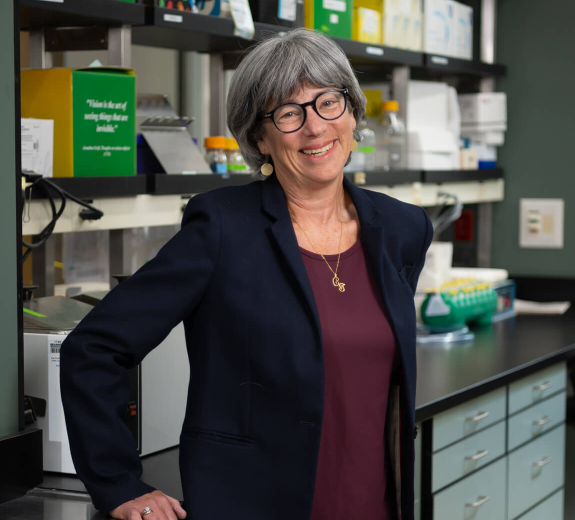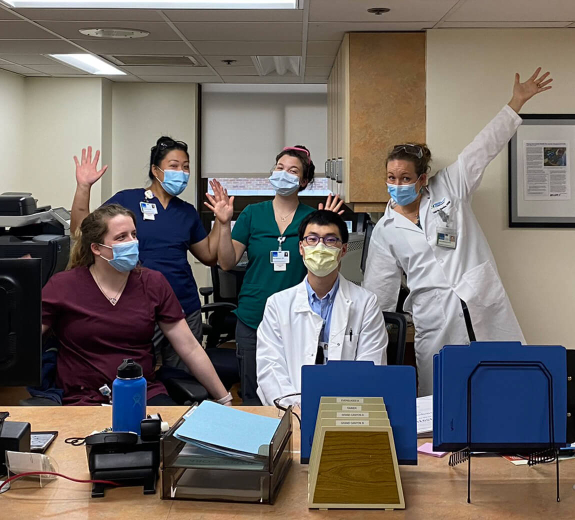Three Weeks, 160+ Doses, 6 Feet Apart
Dana VanBuecken, ARNP, a sub-investigator on the Pfizer study, remembers the exact moment she learned BRI would be a testing site.
“I had this immense feeling of excitement and gratitude to play just a small part in the solution to the pandemic,” she says. “This year has been hard for everyone, but contributing to this trial gave me a tremendous sense of hope. I had so much faith in our team.”
BRI was one of about 150 Pfizer testing sites across six countries and 39 states. First, researchers opened enrollment for the trial and spread the word that they were looking for volunteers to participate in the study. Some participants would receive the vaccine, others would receive the placebo.
“Everybody wanted to participate — we could have enrolled ten times as many people,” says Dr. Greenbaum, who led BRI’s arm of the study. “We needed frontline workers to enroll, and several Virginia Mason ER doctors and those from other local hospitals were excited to get involved.”
Then came the jigsaw puzzle of logistics: They had only three weeks to give the first vaccine dose to over 80 participants — and maintaining social distancing meant they could have only a handful of people in BRI’s Clinical Research Center at a time. The research team mapped out detailed plans and schedules and worked nights and weekends to make this happen.
“This experience taught me that if something looks impossible, it’s probably not with this team,” says Research Technician Rachel Hartley.
At the end of each day, they followed another detailed protocol: They entered data about potential COVID-19 illnesses and vaccine side effects, being monitored closely by Pfizer.
“I entered the data every single day,” Rachel says. “I saw the safety measures in place and know that every box was checked, and every precaution was taken. That’s made me really confident in telling family and friends that this vaccine is a good thing and we’re really proud to be part of this work.”
Making a Difference
After weeks of long hours, the team had given two doses of the vaccine or a placebo to 82 participants. Next, they waited: for enough data to be collected worldwide, for Pfizer to announce whether its safety and efficacy endpoints had been met, and for the FDA to independently review the data and decide whether to authorize the vaccine for emergency use.





